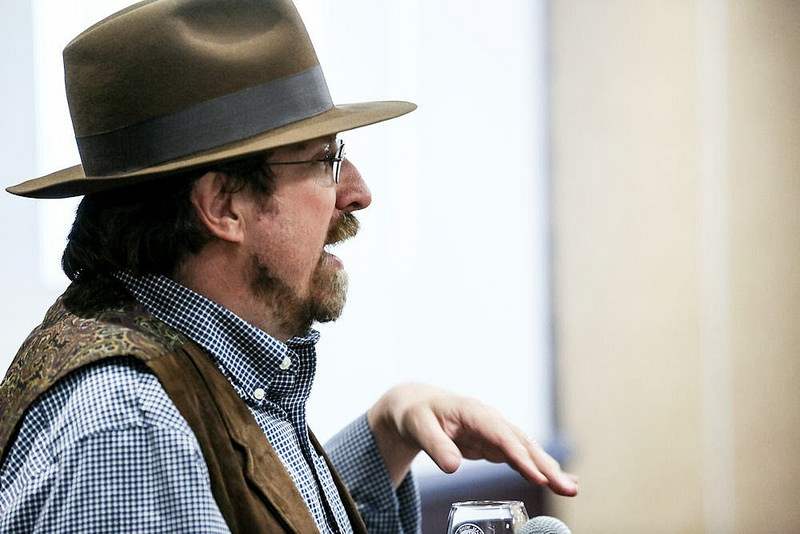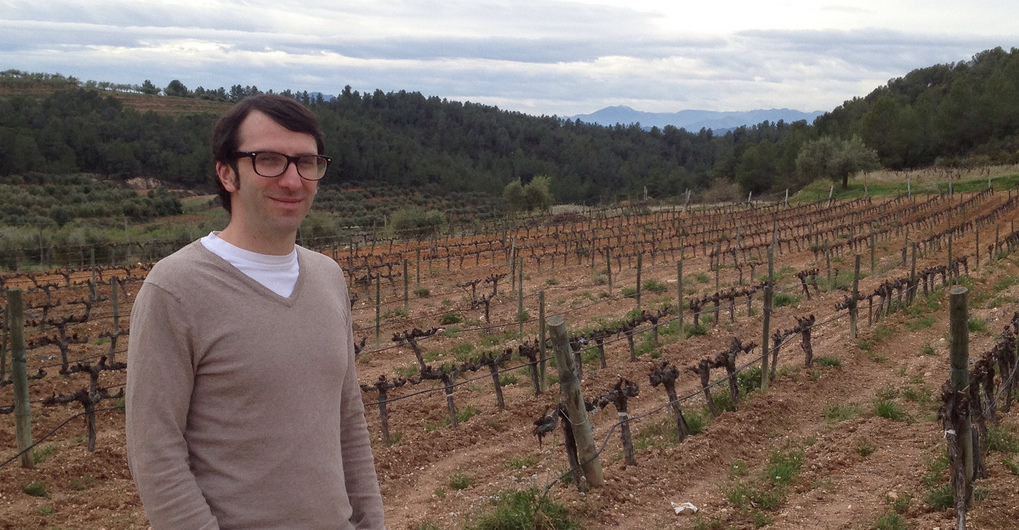
How does one become a Wine Curmudgeon? Jeff Siegel, creator the blog of the same name, discusses the path that brought him to that point in our latest series of SpeakEasy interviews with wine bloggers. Siegel's also a cheap wine expert; hell, he wrote the book on it. Also discussed: looking at the business of wine with a cynical eye, Texas wine, and the world of judging.
You wrote the Wine Curmudgeon's Guide to Cheap Wine. Can you give me a State of The Cheap Wine Address? Are we better off than we were ten years ago when it comes to cheap wine? More variety, finer quality?
The quality of cheap wine is better than it has ever been. It's almost impossible to find flawed or poorly made wine on store shelves. It's almost all technically correct, and that was unheard of when I started writing about wine in the early 1990s. We used to drink some junk – tannic, unripe fruit, varietally mysterious–because that's all there was.
Today, you can go to a grocery store or large retailer anywhere in the country and pick a wine at random off the shelf and it will be fine. It might not be exciting, and it might be too fruity or too one-note, but it will be acceptable for your $10. And it's just not wine from California, but from all over the world, and made with grapes that were unheard of a decade ago. Who saw viognier in a grocery store at the turn of the century?
Even better, you don't have to settle for just fine. $10 or $12 (and sometimes even less) can buy an interesting bottle of wine from one of dozens of producers who didn't exist a decade ago. Just be willing to try something different, and don't depend on the cute name or silly label.
Along those lines, what cheap wines (labels, regions) have been consistently in your Hall of Fame? Rising stars? Any strategy for picking out a winner in a sea of unfamiliar labels in, say, a grocery store?
Dry rosé, from almost anywhere, may be the best value in the world. It's almost impossible to find a bad rosé for $10. I've been touting rosés for years, and it's a pleasure to see Americans finally embrace them. Look for Spanish rosés, Charles & Charles from Washington, and almost any $10 rosé from southern France.
Cava, Spanish sparkling wine, is another sure thing. Mostly around $10, and even the less expensive wines from the biggest producers like Cristalino and Freixenet are amazing values.These are methode champenoise and not charmat for $8. I love Segura Viudas brut and rosé, as well as Naveran and Casteller.
Whites from Gascony, made with ugni blanc and colombard, and reds and whites from Sicily, made with nero d'avola, grillo, inzolia, and other native grapes. The best known Gascon producer is Tariquet, but like rosé, almost all of them offer professional, value-oriented wines that are fun to drink. Sicily has even become trendy, and it's showing up in the wine magazines. But you can find great cheap wines from Planeta and Cusumano.
You wrote to me, “I think the wine business, with some exceptions, doesn't care about educating consumers or even attracting new ones, content to confuse us and to do business in the bubble that is the constitutionally-protected three-tier system.” This is a pretty dim and cynical view of the wine business. What’s the solution?
Here's why I'm so cynical about the wine business and three-tier. Per capita consumption in the U.S. remained mostly the same between the first wine boom in the 1970s and the beginning of the last recession. It only started to increase after the recession, when–not coincidentally–the amount of wine we bought increased, but total dollar sales declined. The year was 2008, and that will be a watershed in wine history. Because that's when wine drinkers figured out they didn't need to spend a lot for wine to enjoy it.
I talk to consumers all the time, and they're scared to death of wine. They apologize for not knowing more or for drinking something that might offend me. In what other consumer good does that happen? Does someone apologize to their dinner guests for serving Maxwell House coffee?
What needs to change? First, the elimination of scores and winespeak. Scores, regardless of who gives them, penalize cheap wine and white wine, which is most of what ordinary wine drinkers buy. Does the car business give crappy ratings to its entry level models? Winespeak (and I got an email about this other day from a consumer complaining about exactly this) scares everyone else off. What can it possibly mean to someone in a grocery store that a $12 wine has notes of beeswax, other than to make them run in terror?
Third, we need to find a three-tier compromise, so that consumers can buy the wine they want in the easiest way possible. The problem is that the wine business, mostly the distributors but also some retailers, makes enough money now, so they don't see a need to change for possible larger profits in the future.
I’ve had one wine from Texas, a red blend from McPherson Cellars, that was a surprising hit at a brisket and wine challenge/smackdown. What Texas wines should I have on my radar?
Texas, like New York, Virginia, Colorado, and Missouri, makes some amazing wine. The other big storyover the past decade, besides cheap wine, is the growth of regional wine in quality and popularity. The most interesting producers in Texas are McPherson, Pedernales, and Brennan, but there are about a dozen who make quality wine, and it's possible to go to a store in Texas and buy a competent, fairly-priced bottle. That was a long time coming.
Find out Siegel's favorite places to eat and drink in and around Dallas.
You do a fair amount of judging at wine competitions. What’s the most wines you might taste in a day for an event? What strategies do you employ to keep your palate and your mind sharp?
Everyone who has ever judged has stories of 200 wines in a day. I always ask to judge regional wine, because the varietals are more fun and less tedious. But not all of us are willing to do frontenac or marquette. And we all have to judge something like three or four flights in a row of high-alcohol zinfandel, where the only thing to do is pace yourself, eat lots of celery, and try to keep an open mind. I also like to ask questions of the other judges on the panel, even though that's discouraged in many competitions. They may have tasted something I didn't.
What’s changed in the world of wine blogging since you started in 2007?
Fewer quality blogs, more snarkiness and bitterness among those who did not become rich and famous because they thought they should, and less professionalism. It's also important to note the rise of CellarTracker and the increasing importance of mainstream writers like Eric Asimov and Jon Bonné online.
Wine writing is the best job in the world, and I don't understand why so many of us, both online and in print, have such chips on our shoulders.
Are you really such a curmudgeon when it comes to wine? Tell me your most quintessential thought or action related to wine that will convince me of your curmudgeonly ways beyond a shadow of a doubt.
Two stories. First, I always ask in restaurants why they don't have local wine on their lists, which has gotten me in some trouble. You'd think by now I'd know better. Second, that I always, always argue for honesty and integrity in winemaking, in that wine should be made for the wine drinker and not focus groups, the critic, or the winemaker. That also does not sit well with many people. A PR person told me once that her bosses, who were making an overpriced, overoaked chardonnay to take advantage of a certain demographic, were livid when I noted in a review that it was made to be overpriced, overoaked, and to take advantage of a certain demographic.
Get to know all our SpeakEasy interviewees:
Follow Grape Collective 's board SpeakEasy: Interviews with Wine Writers on Pinterest.










